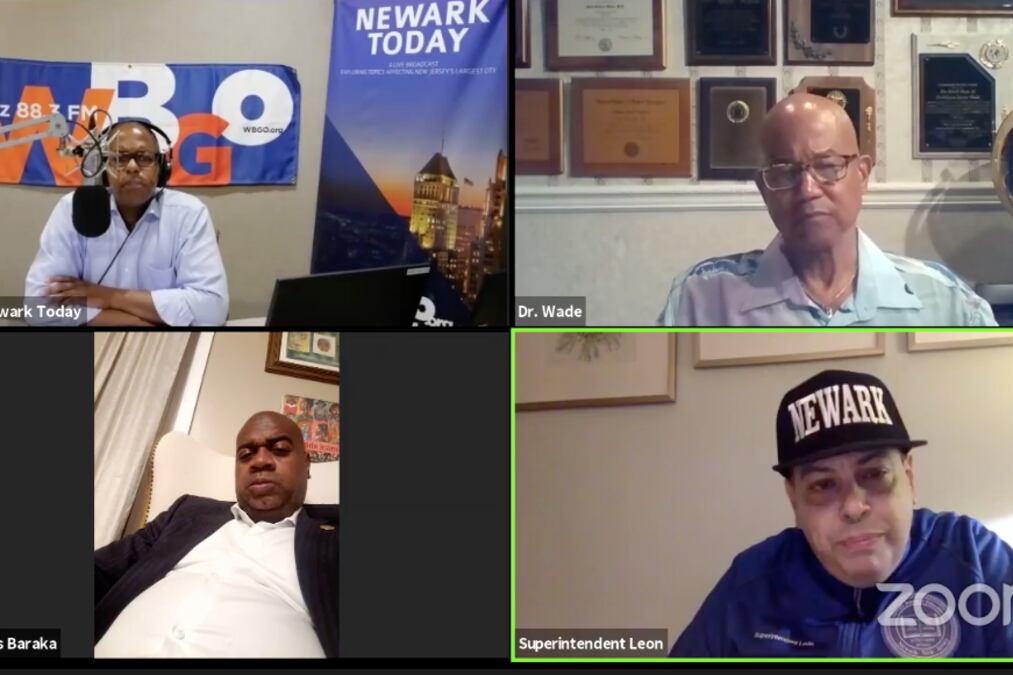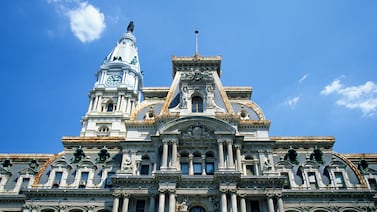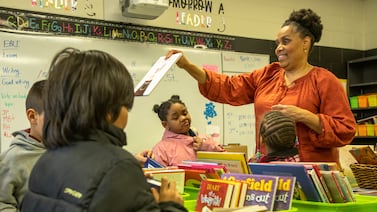Newark is planning for a mix of in-person and virtual learning this fall, though parents will have the final say on whether their children return to classrooms, Superintendent Roger León said.
The Newark school district has not unveiled its plans for the coming school year, which must be submitted to the state next month. But they will likely involve a “hybrid” of in-person and online learning, León said Thursday during an interview on WBGO’s “Newark Today” radio program.
He also nodded to the fact that many parents and educators remain fearful of reopening classrooms during the pandemic no matter how many safety measures are put in place. No families will be forced to send their children back into school buildings, León said, suggesting they can opt for fully online classes.
“They will have the ultimate choice of saying what is in the best interest of their children, whether it’s in person or virtual,” he said. “My job is to make sure that they have an incredible teacher in front of them, whether it’s in person or on the computer screen.”
School districts nationwide are grappling with whether and how to safely reopen classrooms as coronavirus cases surge across the country. In New Jersey, where new infections and deaths have leveled off but the transmission rate has crept up, Gov. Phil Murphy has pushed for students to return to classrooms at least part-time in September. But he recently cautioned that classrooms can’t reopen if new outbreaks emerge.
A key factor guiding districts’ decision-making for the fall is how contained — or out of control — the virus is in their communities. As local infection rates soar, districts in California, Indiana, Arizona, and other states have said that the school year will start with all virtual classes.
Once a coronavirus hotspot, New Jersey is one of the few states where several important metrics — including daily new cases and the infection rate — are trending down. Some experts say the average daily infection rate, which measures the percentage of people who test positive for the virus, must drop below 5% to control the virus’ spread. New Jersey’s current average positivity rate is 1.4%.
In Newark, which has been hard hit by the virus, the rate is closer to 5%, down from a peak of 69%, officials said Thursday. The city’s daily number of new coronavirus cases and deaths has also fallen dramatically from their peak in April. On Thursday, Newark recorded its first day with no new deaths or cases.
Those positive trends bode well for the reopening of Newark schools, said Mayor Ras Baraka, who joined León on the radio along with Dr. Mark Wade, director of the city health department. But Baraka warned that Newark cannot reopen classrooms if the virus flares up again.
“If we start reaching numbers that are just too high for us to manage, then we just have to abort the whole thing,” he said.
Dr. Wade echoed the mayor’s cautious optimism. However, he went a step further by suggesting that even under the current conditions students should plan to spend more time learning at home than school.
“I would agree it has to be virtual as well as in person,” he said. “In the early stages, more virtual than in person.”
León did not say how much time students will spend each week learning remotely versus in person. But school space will limit what’s possible: Classrooms can only hold about 10 students in order to comply with health guidelines that students stay 6 feet apart, he said. The class-size restrictions likely mean students will only be able to come into school a few days a week.
John Abeigon, president of the Newark Teachers Union, estimated that students will only be able learn in classrooms about 25% of the time this school year.
“We just don’t have the space to ensure the safety of staff and students,” he said in an email.
In order to enable more in-person learning, Abeigon said the city could turn available private spaces into makeshift classrooms. Those could include local churches, libraries, and performance centers with spare rooms.
“Anything that expands the instructional square footage should be taken into consideration by our leaders,” he said, “and it has to be done now.”
The district has started to test out safety measures for in-person learning. It piloted two summer school sites this month where students and teachers come into classrooms wearing masks and staying physically distanced.
“Part of our strategy was to begin small, assess it, monitor it,” León said Thursday, “always making sure that the health and safety of the students and staff is first and foremost.”
But a big question remains: Will the new safety protocols be enough to win over wary parents and teachers? Some families and educators opted into the in-person summer school program, suggesting they were persuaded by the district’s safety plan. But others are more skeptical.
Andria Belcher, whose children attend Hawthorne Avenue School, said she is undecided about reopening classrooms. She questioned whether students will wear masks for the full school day or refrain from getting closer than 6 feet to their friends and teachers.
“I have to hear a real plan on how they’re going to go forward protecting these kids before mine can go back,” she said.
Mayor Baraka acknowledged such fears Thursday, saying some parents will be “scared to death” about sending their children to school until they learn more about the new safety measures. He called the in-person pilot program “excellent,” but said the district needs to share its full reopening plans with families.
“They need to see what’s going on,” he said, “and hear from the superintendent and see what his plans are.”







